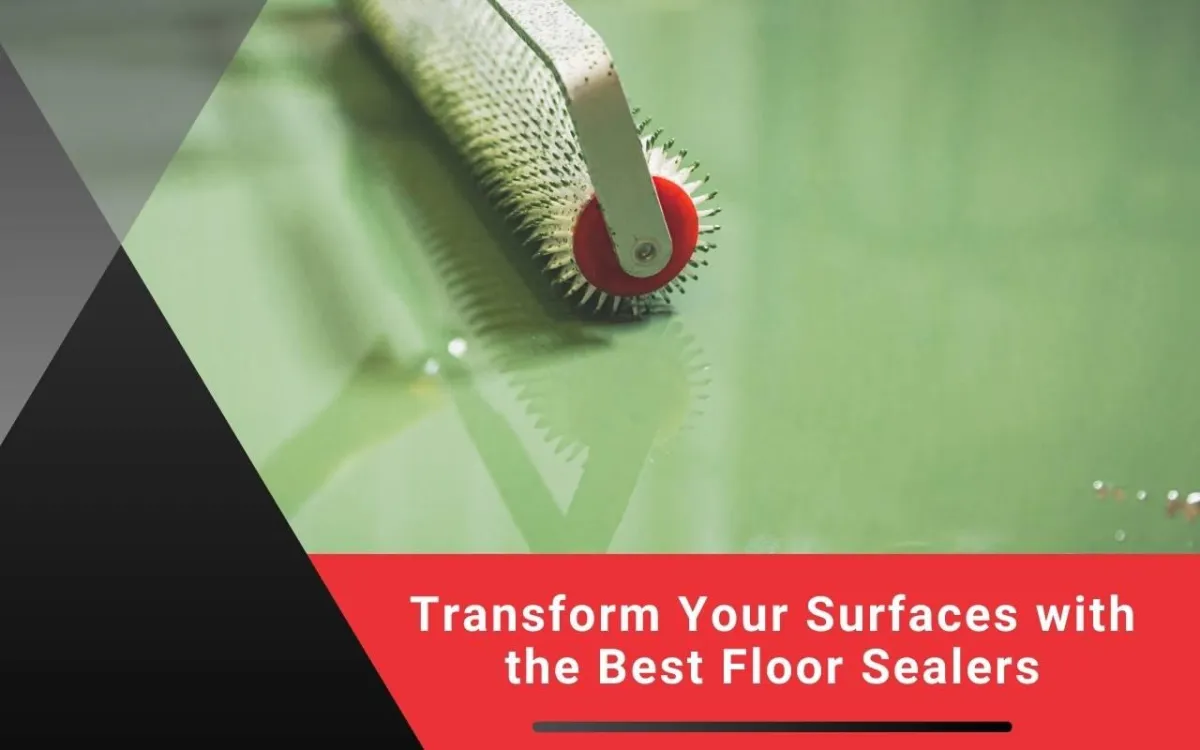BLOG

Transform Your Surfaces with the Best Floor Sealers
Whether in a cozy room or a busy garage, floor sealers protect and beautify your surfaces effectively and affordably. They extend lifespan, boost aesthetics, and simplify maintenance. Fortunately, many types of sealers are available to meet different needs. This guide helps you explore them all.
Statistics show sealed garage floors can last 20 years longer. Clearly, floor sealers are a smart investment. Whether in Omaha or elsewhere, choosing wisely makes a real difference. Now, let's look at your options and how to apply them properly for best results.
Types of Floor Sealers
Acrylic sealers dry quickly and are affordable. They form a thin film and work well on patios and garage floors.
Penetrating sealers, like silanes and siloxanes, absorb into porous surfaces. They prevent water damage and preserve natural appearance.
Epoxy sealers offer durability and shine. They resist stains and abrasion, ideal for garages or commercial areas with high traffic.
Polyurethane sealers are flexible and tough. They handle surface movement better than epoxies and resist chemicals well.
Silicate-based sealers are moisture-resistant. They form permanent barriers and suit Omaha’s freeze-thaw conditions perfectly.
Choosing the right floor sealers depends on many factors. Think about finish, moisture, UV, budget, and maintenance expectations.
Benefits of Using Floor Sealers
Sealers improve your floor's appearance immediately. They deepen color and add sheen. Moreover, they block water, oils, and chemicals.
Floor sealers prevent tire marks and surface wear in garages. Therefore, they support long-term coating maintenance.
Many sealers also add UV stability and slip resistance. They stop mold and mildew from forming, especially in damp or porous materials.
In addition, low-VOC options support better air quality. Therefore, floor sealers offer value in both health and durability.
Factors to Consider When Choosing a Floor Sealer
Consider traffic levels and environment. Garages need epoxy or polyurethane. Indoors, use water-based acrylics for safe air quality.
Gloss finishes resist stains but show imperfections. Satin hides flaws but may need frequent cleaning. Choose the look that suits your space.
Budget and installation difficulty also matter. DIY sealers are simple but may lack durability. Pro-grade products last longer but cost more.
Always review technical sheets. Pay attention to cure time, VOCs, and coverage. That way, you make an informed choice on floor sealers.
How to Prepare Your Floors for Sealing
Clear the floor completely. Sweep and vacuum all dirt. Then, inspect and patch any cracks or chips to create a flat surface.
Next, degrease thoroughly. Use TSP or a commercial cleaner. Rinse well and let the surface dry fully before moving on.
For smooth concrete, light acid etching improves adhesion. Always neutralize and rinse afterward. In Omaha, test for moisture first.
Proper garage floor preparation is vital. For professional assistance, visit our floor coating services page.
Application Techniques for Floor Sealers
Use a brush, roller, or sprayer. Keep a wet edge to avoid lap lines. Work in small, manageable sections.
Mix epoxy or polyurethane products quickly. They harden fast. Start in one corner and work toward the exit to avoid walking over wet sealer.
Observe flash times between coats. Also, temperature and humidity affect curing. So plan your project when conditions are ideal.
Maintaining Sealed Floors
Sweep or dust-mop daily. This removes dirt that may wear down the surface. Consistent cleaning preserves the sealer’s shine and durability.
Use only pH-neutral cleaners. Harsh chemicals damage the coating and reduce its lifespan. Gentle cleaning is always best.
Do deep cleaning every few months. Use scrub brushes or floor machines. At the same time, inspect for wear or scratches.
Touch up worn areas as needed. This small effort helps extend your floor sealers lifespan greatly.
DIY vs. Professional Floor Sealing
DIY kits work for small or simple surfaces. They include tools and easy instructions. However, results vary by user skill.
Pro installers use advanced methods. They offer surface profiling, moisture tests, and warranties. You also save time and effort.
Need help deciding? Explore Nebraska floor coating experts who handle all types of sealers with precision and care.
Enhancing Safety with Anti-Slip Coatings
Anti-slip coatings improve traction. Add silica or aluminum oxide to your sealer. This gives a fine texture without losing shine.
Broadcast grit over the wet layer. Press it in gently. After curing, apply a clear coat to lock in the texture.
These coatings reduce falls. Therefore, floor sealers also contribute to a safer, slip-resistant space in garages and walkways.
FAQ
How long do floor sealers last?
That depends on the type. Acrylics last a few years. Epoxies and polyurethanes often last much longer under normal use.
Can I apply floor sealers myself?
Yes, many are DIY-friendly. Still, follow instructions carefully. For large or complex jobs, professionals are highly recommended.
Do sealers change floor color?
Some do. Epoxy and gloss finishes deepen color. Others, like penetrating sealers, preserve the natural appearance of your surface.
Is sealing necessary in dry climates?
Yes. Even without rain, dust, oil, and UV rays affect concrete. Floor sealers add protection in all environments.
Longevity and Cost-Effectiveness of Floor Sealers
Higher-grade floor sealers last longer and reduce maintenance needs. Acrylics may need reapplication sooner. Epoxies offer greater durability.
Professional products cost more upfront. However, they reduce long-term spending through fewer repairs and better performance.
Want to protect your investment? Contact our team for expert advice and sealing solutions that last.

Cracks, gaps, and surface wear weaken concrete, causing costly damage. You need a solution that lasts. That’s where we come in. Our expert team specializes in sealing and caulking, ensuring durable surfaces that withstand time and weather.




